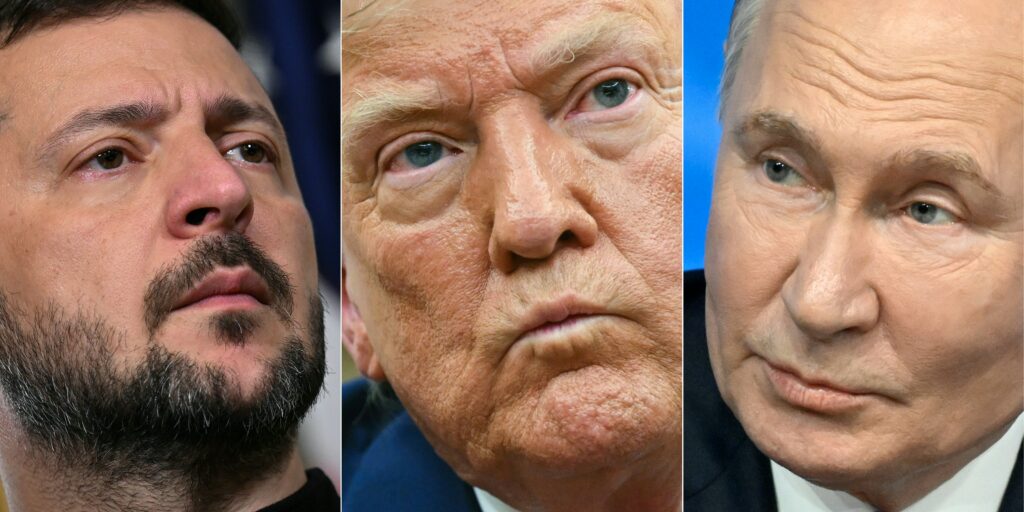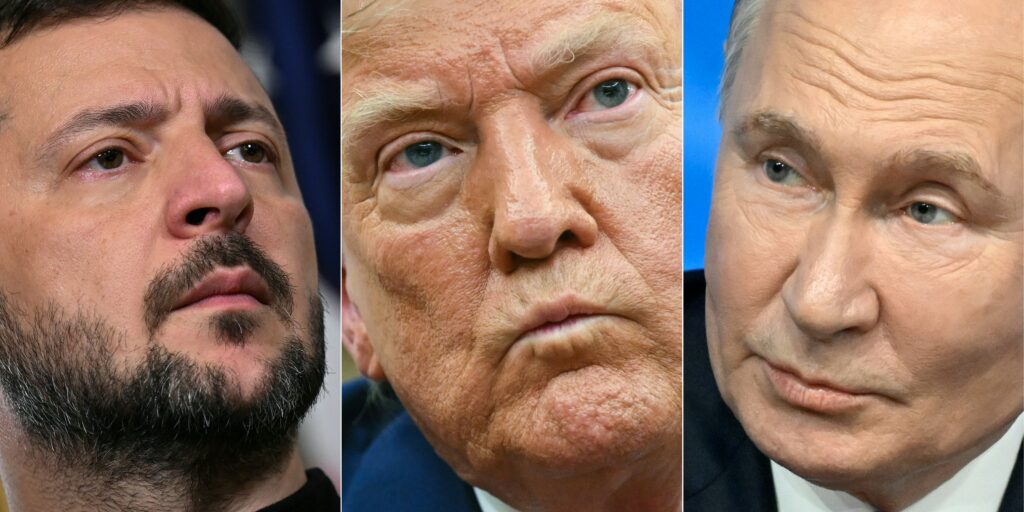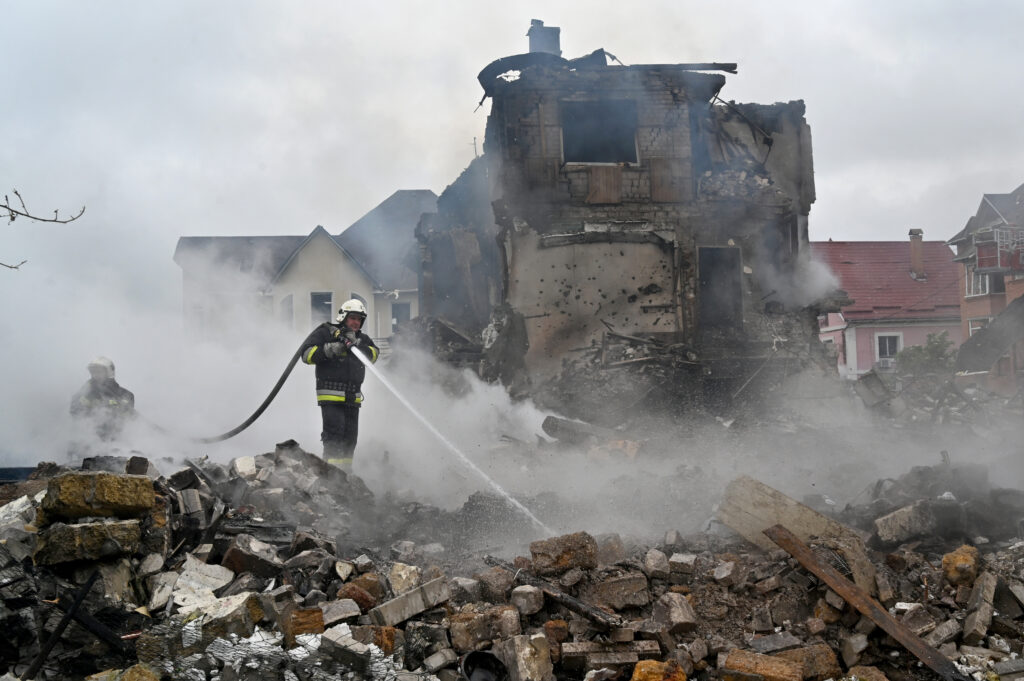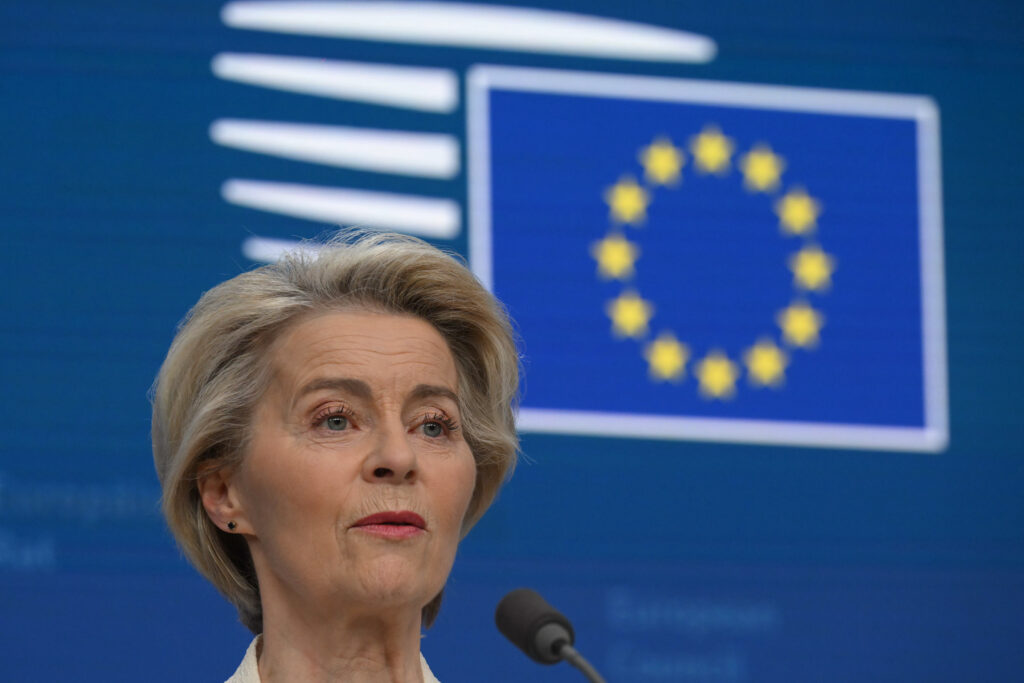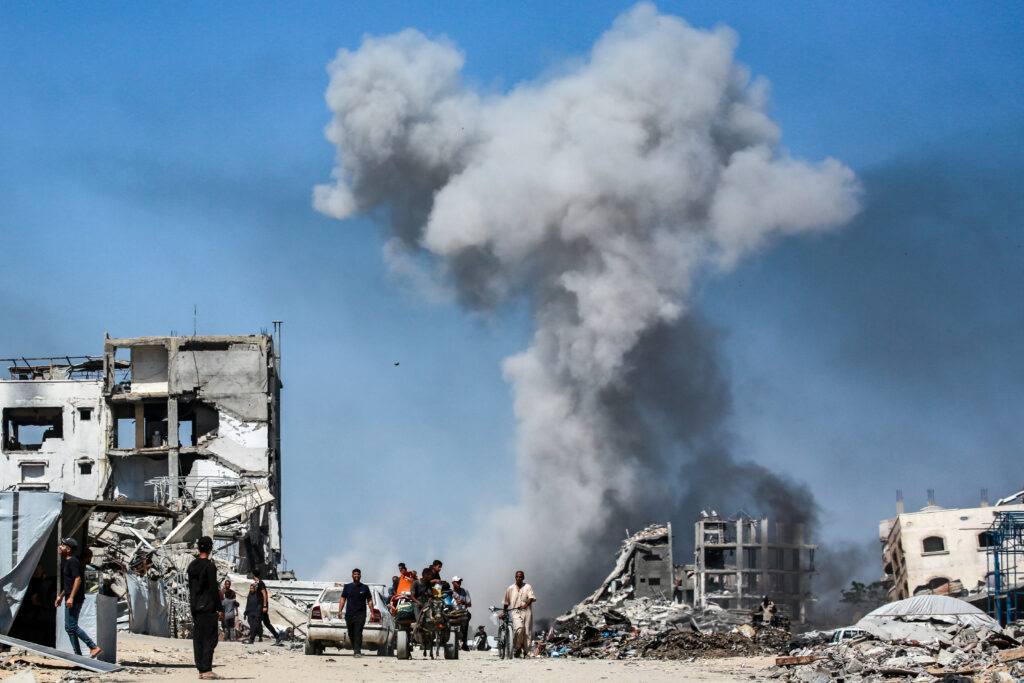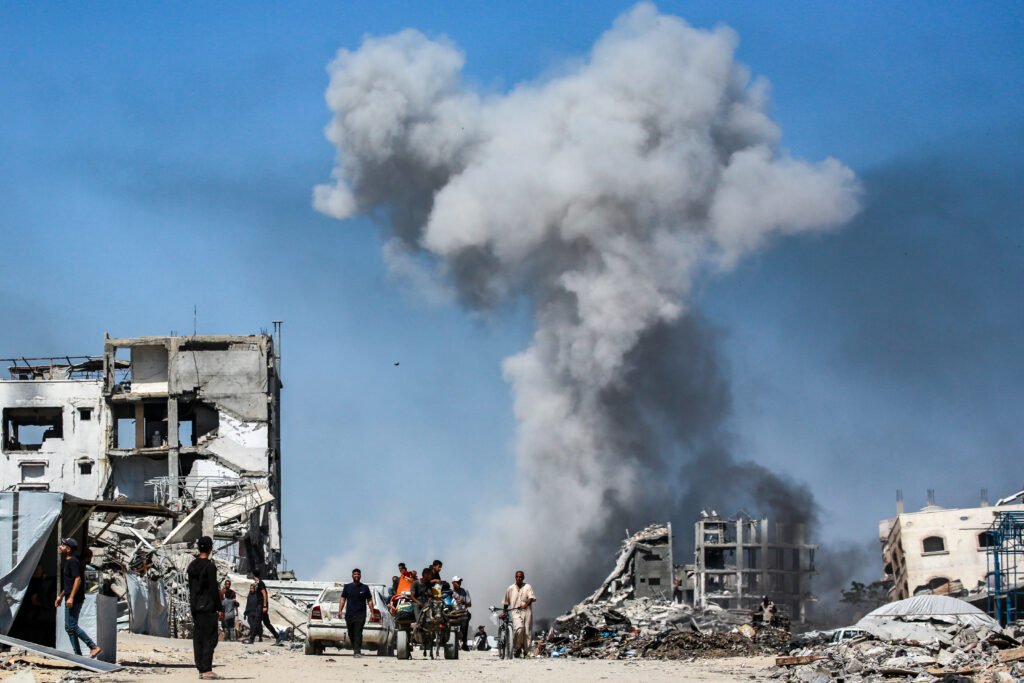Trump estime que Poutine “est devenu complètement fou” après des attaques meurtrières en Ukraine
Donald Trump a affirmé dimanche que Vladimir Poutine était “devenu complètement fou”, durcissant le ton contre Moscou après un week-end d’attaques russes meurtrières contre l’Ukraine malgré les appels au cessez-le-feu.Le président américain dit vouloir une fin rapide de la guerre entre l’Ukraine mais, malgré son optimisme affiché encore lundi dernier après un appel de près de deux heures avec son homologue russe, les bombardements se sont intensifiés avec 13 morts côté ukrainien dimanche matin.”J’ai toujours eu de très bonnes relations avec (le président) russe Vladimir Poutine mais quelque chose lui est arrivé. Il est devenu complètement FOU!”, a écrit M. Trump sur le réseau social Truth Social.”J’ai toujours dit qu’il voulait TOUTE l’Ukraine, pas seulement une partie, et peut-être que cela se révèle juste mais s’il le fait, cela mènera à la chute de la Russie!”, a-t-il ajouté.Dans la nuit de dimanche à lundi, les autorités ukrainiennes ont encore fait état de deux blessés – une femme de 60 ans et un homme de 52 ans – dans une “attaque russe” dans la région de Zaporijjia, ainsi que de frappes dans les régions de Khmelnytski (ouest) et de “puissantes explosions” dans la ville de Kharkiv (nord-est).A Kiev, le maire Vitali Klitschko a indiqué que la défense antiaérienne avait été activée face à une attaque de drones.Des alertes aériennes ont été déclenchées sur l’ensemble du territoire national dans la nuit, mais les bombardements rapportés semblaient selon les premières informations moins massifs que lors des deux nuits précédentes.Selon l’armée de l’air, l’Ukraine avait subi dimanche à l’aube une attaque combinée de 367 projectiles: 69 missiles et 298 drones. Les autorités ukrainiennes ont fait état de 13 morts, dont quatre dans la région de Kiev ainsi que trois enfants dans la région de Jytomyr (nord-ouest).Dans la nuit de vendredi à samedi, quelque 250 drones et 14 missiles balistiques avaient été détectés, ciblant en majorité la capitale.- “Pression” -L’armée russe a déclaré avoir frappé lors de ces deux nuits des entreprises du “complexe militaro-industriel” ukrainien.Côté russe, le fonctionnement de plusieurs aéroports moscovites a une nouvelle fois été perturbé dans la nuit, alors que différentes régions russes dont la capitale ont fait état de drones interceptés par la défense anti-aérienne.Les bombardements russes du week-end ont poussé Kiev et ses alliés européens à appeler à punir Moscou, la cheffe de la diplomatie de l’UE Kaja Kallas réclamant “la plus forte pression internationale sur la Russie”, tandis que Berlin dénonçait “un affront, y compris envers le président américain Donald Trump, qui a tant fait pour amener Poutine à la table des négociations”.Dans un autre appel du pied à Washington, le président ukrainien Volodymyr Zelensky a estimé que “le silence de l’Amérique et des autres ne font qu’encourager Poutine”.Mais Donald Trump reste évasif sur toute action concrète visant la Russie, répondant simplement dimanche soir “absolument” quand il a été interrogé sur la possibilité de renforcer les sanctions américaines.Et il n’a pas caché sa frustration envers M. Zelensky: “Tout ce qui sort de sa bouche crée des problèmes, je n’aime pas ça et il ferait mieux d’arrêter”.- Echange de prisonniers -La Russie a lancé une offensive militaire à grande échelle en Ukraine en février 2022 et contrôle à l’heure actuelle environ 20% de ce pays voisin, dont la Crimée, péninsule annexée en 2014.Les combats ont tué et blessé des dizaines de milliers de militaires et de civils des deux côtés et obligé des millions de personnes à fuir. Des villes et villages entiers ont été détruits dans l’est et le sud de l’Ukraine.Depuis mi-février, l’administration américaine de Donald Trump multiplie les appels à un cessez-le-feu et s’est rapprochée pour cela de Moscou, sans résultat probant pour l’heure.En l’état, les positions de l’Ukraine et de la Russie s’opposent: Kiev demande un cessez-le-feu “inconditionnel” de 30 jours pour permettre des discussions de paix, tandis que Moscou part du principe que les négociations doivent se faire “simultanément” aux combats.Seul résultat tangible des pourparlers directs entre Russes et Ukrainiens mi-mai à Istanbul: Kiev et Moscou ont procédé ces derniers jours à un vaste échange de prisonniers au format 1.000 pour 1.000, qui s’est achevé avec la remise par chaque camp de 303 prisonniers.La diplomatie russe avait indiqué vendredi que Moscou travaillait sur un document exposant “les conditions d’un accord durable” pour régler le conflit, qui doit être transmis à Kiev une fois l’échange de prisonniers finalisé.
